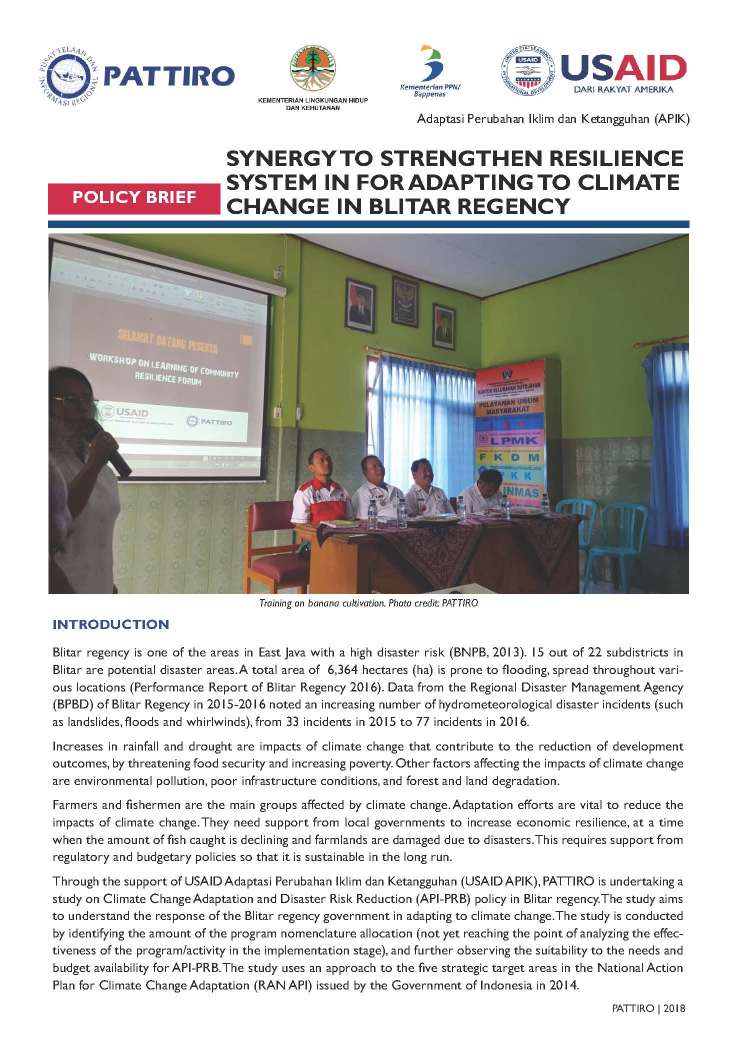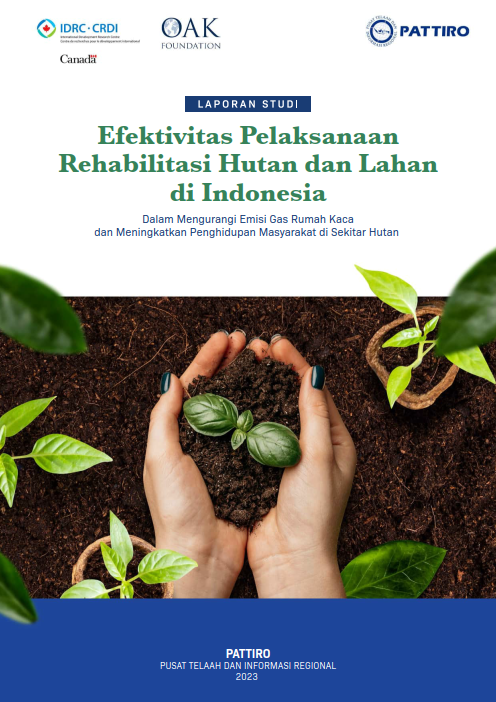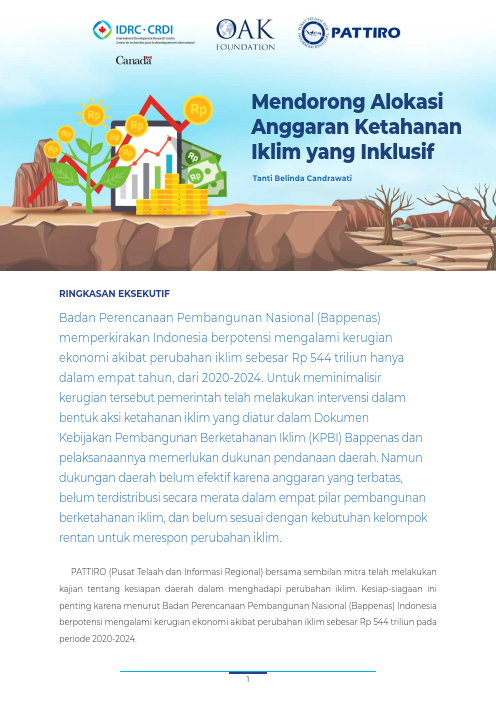 Blitar Regency is one of the areas in East Java with a high disaster risk (BNPB, 2013). 15 of the 22 sub-districts are potential disaster areas. The area of critical lands in Blitar Regency prone to flooding, spread in various locations, amounted to 6,364 ha (Performance Report of Blitar Regency 2016). Data from BPBD of Blitar Regency 2015- 2016 mention an increasing number of hydrometeorological disaster incidents, from 33 events in 2015, increasing to 77 events in 2016, with several types of disasters including landslides, floods and whirlwinds.
Blitar Regency is one of the areas in East Java with a high disaster risk (BNPB, 2013). 15 of the 22 sub-districts are potential disaster areas. The area of critical lands in Blitar Regency prone to flooding, spread in various locations, amounted to 6,364 ha (Performance Report of Blitar Regency 2016). Data from BPBD of Blitar Regency 2015- 2016 mention an increasing number of hydrometeorological disaster incidents, from 33 events in 2015, increasing to 77 events in 2016, with several types of disasters including landslides, floods and whirlwinds.
Increases in rainfall and drought are impacts of climate change that contribute to the reduction of development outcomes, by threatening food security and increasing poverty. Other factors affecting the impacts of climate change are environmental pollution, poor infrastructure conditions, and forest and land degradation.
Farmers and fishermen are the main groups affected by climate change. Adaptation efforts become an important choice to be undertaken in order to reduce the impacts caused by climate change. They need support from local government in improving economic resilience, at a time when the amount of fish caught is declining, or farmlands are damaged due to disasters. These require support from regulatory and budgetary policies so that the handling can be done in the long run.
Through the support of the Adaptation to Climate and Resilience (APIK) Program, PATTIRO undertakes a study on Climate Change Adaptation and Disaster Risk Reduction (API-PRB) policy in Blitar Regency. This study aims to see the response of Blitar Regency Government in adapting to climate change. The study is conducted by identifying the amount of the program nomenclature allocation (not yet reaching the point of analyzing the effectiveness of the program/activity in the implementation stage), and further observing the aspect of conformity to the needs and budget availability for API-PRB. The study uses an approach to the five strategic target areas contained in the National Action Plan for Climate Change Adaptation (RAN API) issued by the Government of Indonesia in 2014.




